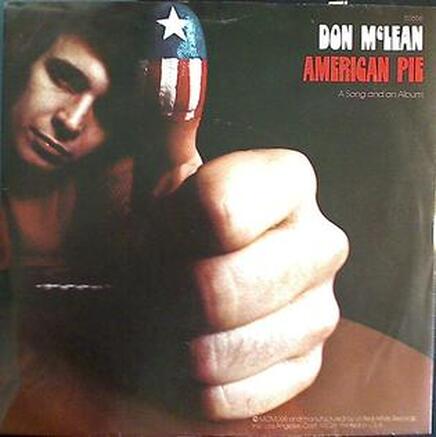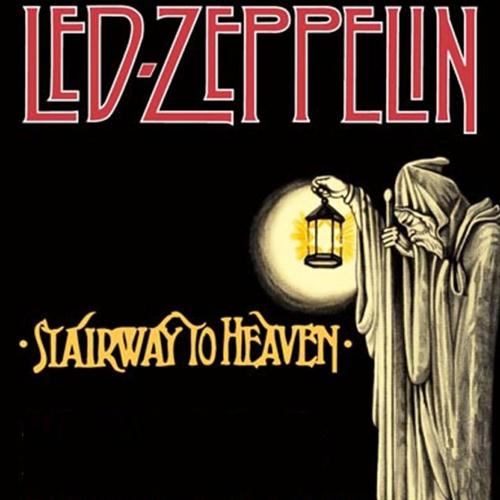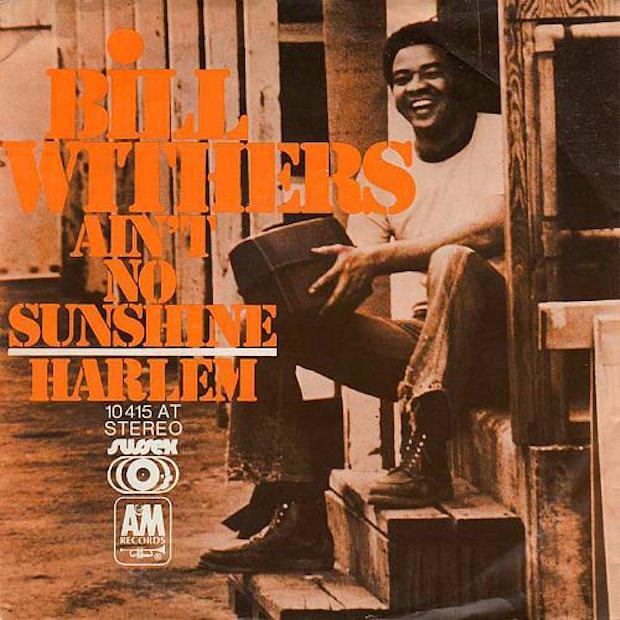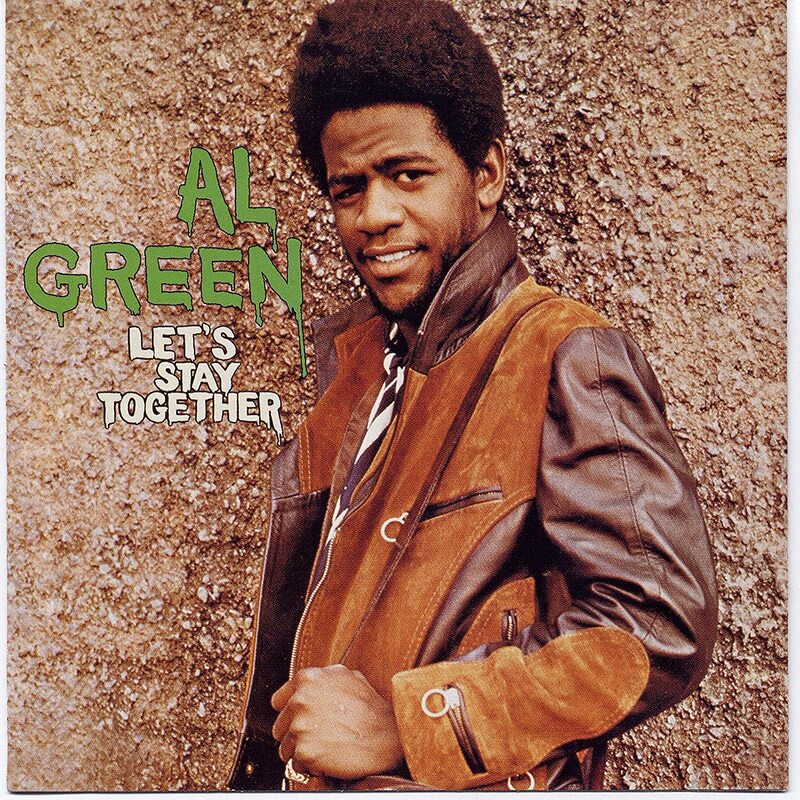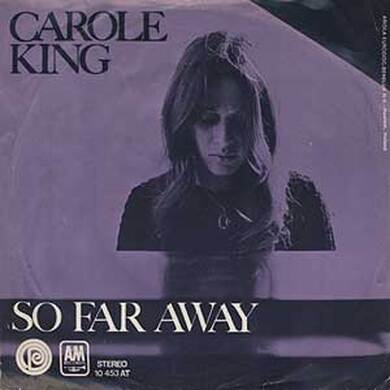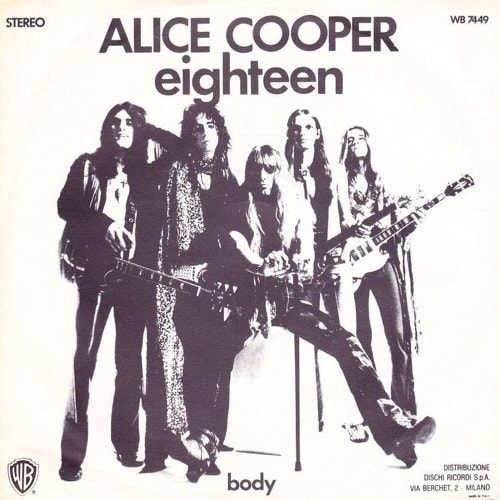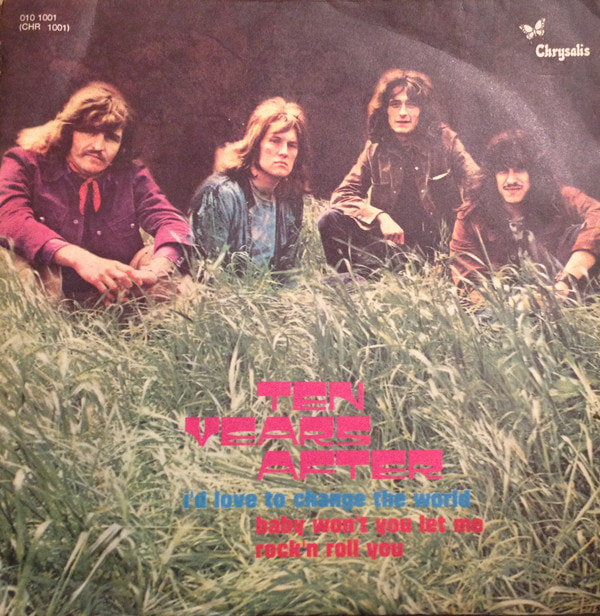|
by Julian Spivey
1. American Pie – Don McLean I understand why some might cringe upon seeing Don McLean’s epic “American Pie” top this list of greatest songs from 1971 as it’s been overplayed throughout the years and for McLean’s belief that rock music died basically in its infancy, but it’s such a brilliantly written song with so much symbolism that it’s basically a study in pop culture from 1959 throughout the ‘60s. Everything in the pop music world is in this song: Elvis Presley, The Beatles, Bob Dylan, The Rolling Stones Altamont concert, Woodstock and so many people have so many different interpretations for the symbolism. One could literally spend half a day discussing this song and all its meanings.
2. Imagine – John Lennon
I know Gal Gadot and a bunch of Hollywood A-listers tried to kill this song last year, but we shouldn’t forget how great of a song John Lennon’s “Imagine” is. Probably the best post-Beatles song any of the Beatles would release solo, “Imagine” is an encouragement as to what the world could look like if we forgot about the things that separate us as humans like war, religion and materialism. Sure, the sentiments behind “Imagine” are a pipedream and for that reason some might also be rolling their eyes at its high placement on this list, but isn’t the sentiment of the song such a wonderful dream? 3. John Prine’s Entire Debut Album OK, this is cheating, and I know it. When preparing songs for this list I realized I had at least half of singer-songwriter John Prine's self-titled debut album from 1971 on my list and felt it was unfair to other artists to feature so many songs from one guy on the list and frankly I couldn't cut any of the songs because they're too damn good. Few songwriters have ever spoken to me as beautifully and eloquently as Prine and his album just really hits the spot for me with stories of real life issues, especially the loneliness in "Angel from Montgomery" and "Hello in There" and the tragedy of "Sam Stone" and "Six O'Clock News." There's also the greatness of "Paradise," "Far from Me," "Spanish Pipedream" and "Your Flag Decal Won't Get You Into Heaven Anymore." It's truly a perfect album and I couldn't piecemeal it. 4. Me & Bobby McGee – Janis Joplin "Me & Bobby McGee" had been around for a bit. The first release of the song was a rather unmemorable one by country singer Roger Miller in mid-1969. Kenny Rogers and the First Edition also recorded it in '69, but it wasn't released as a single. Folk singer Gordon Lightfoot had a minor hit in his home country of Canada with it in 1970 and Kris Kristofferson, who wrote the song, put it on his debut album in 1970 (and it's a performance that's dear to me). But the ultimate recording of "Me & Bobby McGee" is the one on Janis Joplin's final album Pearl, which would be released following her death of a drug overdose in October of 1970. Joplin had recorded the song, which tells the tale of two drifters hitching a ride across the country, just a few days before her death. Her bluesy take on the song is iconic and it would posthumously become her only no. 1 hit. 5. Stairway to Heaven – Led Zeppelin I know the fact that this isn't no. 1 is likely going to turn a lot of people off, but I must admit Led Zeppelin isn't really my bag. "Stairway to Heaven" would probably be the consensus choice for the greatest classic rock song of all-time mixing Jimmy Page's brilliant hard rock guitar playing with Robert Plant's mysterious lyrics and one of a kind vocal. "Stairway to Heaven" wasn't a huge hit right away, partly because Zeppelin didn't buy into the single thing, but became a rock anthem after a couple of years being played by the band on tour.
6. Tiny Dancer – Elton John
Watch the "Tiny Dancer" scene in director/screenwriter Cameron Crowe's excellent 2000 film "Almost Famous" and try to tell me this isn't a powerful song. The song, with music by Elton John and lyrics by Bernie Taupin, appeared on John's fourth album Madman Across the Water, released in late 1971. Taupin's lyrics were inspired by his first trip to America the year before and meant to capture the spirit of California and women, whom he found completely different than those back home in England. He also told Rolling Stone in 1973 that the song was about his wife at that time, Maxine Feibelman. The mixture of Taupin's lyrics with John's beautiful piano playing is entrancing. 7. What’s Going On – Marvin Gaye Last year Rolling Stone magazine named Marvin Gaye’s album What’s Going On as the greatest album of all-time. The title track is certainly one of the all-time great songs, as well. “What’s Going On,” the lead single released in early 1971, was inspired by police brutality in Berkeley, Calif. witnessed by Obie Benson, a member of the Four Tops, in mid-1969 and upset by what he saw said “What is happening here?” to author ben Edmonds. Benson later discussed what he has seen with songwriter Al Cleveland and from that conversation came one of the great protest songs in the history of pop music. Gaye was inspired by conversations shared between him and his brother, Frankie, who had returned home from three years of service in the Vietnam War. When Gaye told Berry Gordy, found of Motown Records, he wanted to record a protest record, Gordy responded with: “Marvin, don’t be ridiculous. That’s taking things too far.” Luckily, Gaye had enough guts to go that far. 8. Won’t Get Fooled Again – The Who I believe The Who’s 1971 album Who’s Next to be the best the band ever recorded. There are three tracks from that album that made this very list, but I believe “Won’t Get Fooled Again” to be the best of them. “Won’t Get Fooled Again” is an eight-and-a-half minute epic rocker about how revolution can be unpredictable and as soon as one government or group or faction is defeated there’s just going to be another one in its place. The song culminates in one of the all-time greatest final lyrics ever: “meet the new boss, same as the old boss.” 9. Man in Black – Johnny Cash “Man in Black” essentially became Johnny Cash’s theme song giving reasons for why the country performer almost always dressed in dark colors. The song, which would become a no. 3 country hit in 1971, is essentially a protest anthem for many of the wrongs facing the country at the time like the poor treatment of poor folks by wealthy politicians, the treatments of soldiers fighting for their country in Vietnam and having to fight the war in the first place, for those facing mass incarceration in the country. Cash was truly a man of the people, and this might be the song that summarizes that best. 10. Ain’t No Sunshine – Bill Withers One thing I know, I know, I know, I know, I know, I know ... is that everyone loves Bill Withers' 1971 No. 3 hit "Ain't No Sunshine." One of the all-time great R&B/soul classics, "Ain't No Sunshine" finds Withers crooning about a woman who completely alters his life for the worse when she's gone. The song has an interesting inspiration - the 1962 Jack Lemmon film "Days of Wine and Roses," with Withers telling Songfacts.com: "They [characters played by Lemmon and Lee Remick] were both alcoholics who were alternately weak and strong. It's like going back for seconds on rat poison. Sometimes you miss things that weren't particularly good for you. It's just something that crossed my mind from watching that movie, and probably something else that happened in my life that I'm not aware of."
11. If You Could Read My Mind – Gordon Lightfoot
I think Gordon Lightfoot’s “If You Could Read My Mind” is one of the most beautifully written and sung songs of all-time. It’s the kind of song I probably would’ve felt was corny when I was younger but carries such a powerful punch now that I’ve matured. It’s a devastating look into a failed relationship that Lightfoot cites his divorce as inspiration for. As a writer I absolutely love the imagery of relationships as told through images of paperback novels or old-time Hollywood movies. 12. Mr. Bojangles – Nitty Gritty Dirt Band This is maybe a controversial inclusion because The Nitty Gritty Dirt Band releases “Mr. Bojangles” as a single in September of 1970, but it was still on the charts and became a top-10 Billboard hit in early 1971 – so it’s the age old debate on whether a song should be included on a list in the year it was released, the year it peaked on the charts or both. I’ve always loved “Mr. Bojangles” and feel like it is the epitome of folk-country-rock. Songwriter Jerry Jeff Walker was inspired by a street performer in New Orleans he encountered in a local jail for public intoxication. Walker released his version of the song in 1968, but it became a hit for The Nitty Gritty Dirt Band on their album Uncle Charlie & His Dog Teddy. 13. Baba O’Riley – The Who The Who’s “Baba O’Riley” is one of the most famous songs in which the title does not appear in the lyrics. It was named for songwriter and guitarist Pete Townshend’s philosophical and musical mentors, Meher Baba and Terry Riley respectively. Because of the song’s famous “teenage wasteland” lyric the song is often erroneously called “Teenage Wasteland.” Featuring one of the most famous guitar riffs of all-time and one of vocalist Roger Daltrey’s finest vocals “Baba O’Riley” has become one of The Who’s most beloved tracks over their almost 60-year career. 14. Behind Blue Eyes – The Who I seriously believe one could argue that the three best songs of The Who’s legendary career all come from Who’s Next and here is the third track from that album just within the top 15 on this list. “Behind Blue Eyes” is one of The Who’s softest sounding songs, but with some of the group’s angriest lyrics – which has always been interesting to me. The song was originally intended for Pete Townshend’s rock opera “Lifehouse,” which never came to fruition, and was to be sung by the villain of the piece as a first-person lament from a guy believing he’s forced into being the bad guy. 15. Wild Night – Van Morrison Few songs have ever made me want to get off my butt and dance like Van Morrison’s “Wild Night.” The lead single off his Tupelo Honey album, the song peaked at No. 28 on the Billboard chart. It’s just such a blissful song about a night of fun out on the town and truly a tribute to the terrific R&B coming out of a studio like Stax Records in the ‘60s. 16. Levon – Elton John “Levon” was the first single off Elton John’s Madman Across the Water and peaked at no. 24 on the Billboard Hot 100. I’ve always loved this song since I was a young lad, but the lyrics, written by John’s longtime collaborator Bernie Taupin, have always been a bit mysterious to me and I’m sure many others. In Susan Black’s book Elton John in His Own Words John said of the song: “It’s about a guy who just gets bored with blowing up balloons and he just wants to get away from it, but he can’t because it’s family ritual.” That’s doesn’t quite nail it down all the way though, does it? 17. Willin’ – Little Feat Little Feat’s “Willin’” might be the most obscure song on this list, but it’s one of the all-time great trucking songs in any genre of music. The track, off the band’s 1971 self-titled debut album, is about a trucker just doing whatever he can to make end’s meat, even if it means smuggling drugs or people into the United States from Mexico. It’s a brilliant lyric by band leader Lowell George and “Willin’” actually appeared on the group’s first two studio albums with a re-worked slower version on 1972’s Sailin’ Shoes. 18. Let’s Stay Together – Al Green Do you want to know how cool Al Green’s “Let’s Stay Together” is and remains to this day? How many Presidents of the United States have crooned hit songs on camera? Not many, but President Barack Obama memorably sang a bit of “Let’s Stay Together” during a fundraiser featuring Green at the Apollo Theater in New York in 2012. “Let’s Stay Together” is simply one of the smoothest and most romantic vocals ever laid down and probably Green’s finest song. It topped the Billboard Hot 100 in 1971 and was the top R&B song according to Billboard of the year.
19. Kiss An Angel Good Morning – Charley Pride
Simply one of the greatest love songs in the history of country music, Charley Pride’s “Kiss an Angel Good Morning,” a no. 1 hit on the country chart that crossed over and almost hit the top 20 on the pop chart, showcases the wonderful voice of Pride, an important figure in the history of country music as its first major African-American star. 20. Have You Ever Seen the Rain – CCR There have been many theories as to what Creedence Clearwater Revival’s “Have You Ever Seen the Rain,” off the best penultimate album together Pendulum, with some claiming it to be about Vietnam or the ending of the idealism of the ‘60s, but songwriter/vocalist John Fogerty has said it was truly about rising tension within the band and the imminent departure from the band of his brother. “Have you ever seen the rain coming down on a sunny day” was about how high the band was when it came to their successes, but how depressing things were behind the scenes. 21. Dead Flowers – Rolling Stones “Dead Flowers” is my favorite Rolling Stones deep cut. It wasn’t a single off Sticky Fingers, one of the few non-singles to make this list. The song is essentially a kiss-off to an ex-lover and one of the Stones best forays into a country music sound, which was influenced by guitarist Keith Richards friendship with Gram Parsons. 22. Maggie May – Rod Stewart How great is the piano intro to this song? I don’t even think it appears often on classic rock format radio. Rod Stewart, hot off his time with the group Faces, really broke out as a solo artist with this terrific ballad about a boy’s first experience with love with an older, more mature woman. “Maggie May” would top the Billboard Hot 100 becoming the first of three solo no. 1 hits for Stewart. If only Stewart had kept recording music like this and not tripe like “Do Ya Think I’m Sexy.” 23. Help Me Make It Through the Night – Sammi Smith Sammi Smith’s version of “Help Me Make it Through the Night” is listed as the greatest country song of all-time in David Cantwell and Bill Friskics-Warren’s 2003 book Heartaches by the Number: Country Music’s 500 Greatest Singles and while I believe that’s far off from the truth there’s no doubt it’s a classic. The song, written by Kris Kristofferson (who one could argue is the greatest in country history), is about someone just needing someone to love and lean on to make it through the night. Kristofferson told Esquire he was inspired from a Frank Sinatra quote where “Ol’ Blue Eyes” said: “Booze, broads or a bible … whatever helps me make it through the night.” Smith’s version is pure, smooth country Neapolitan. Frankly, I prefer Kristofferson’s own stripped down version from his 1970 debut. 24. Black Magic Woman – Santana “Black Magic Woman” was written by Peter Green during Fleetwood Mac’s blues-rock era before Stevie Nicks and Lindsey Buckingham would come along in the ‘70s and change the group’s sound. The original version is just fine, but when Santana brings that Latin Rock flavor to it in late 1970, with it peaking on the Billboard chart at no. 4 in early 1971, the song just absolutely comes alive. It would be Santana’s highest charting song until his collaboration with Rob Thomas on “Smooth” in 1999 topped Billboard and went through the stratosphere. 25. Proud Mary – Ike & Tina Turner I will admit that Creedence Clearwater Revival’s original version of “Proud Mary,” released in 1969, is my favorite version of the song – I’m just a major fan of CCR – but Ike & Tina Turner put their own flavor on the song in 1971 and really gave the song another life. CCR’s is bayou rock. Ike & Tina Turner make it a funk-soul classic. It’s one of the most memorable tracks of Tina Turner’s rock hall of fame career and earned the group a Grammy in 1972. 26. So Far Away – Carole King There’s so much desperation and longing in Carole King’s “So Far Away” off her award-winning and epic 1971 album Tapestry. I think it’s her best recording as a performer. I think anybody who’s ever been in a relationship and away from the one they love has experienced this feeling. It’s such a simple performance, but King’s vocal with her piano playing is chef’s kiss.
27. The Year Clayton Delaney Died – Tom T. Hall
Tom T. Hall can weave a short story in song like nobody else and one of his greatest hits is 1971's "The Year Clayton Delaney Died," which topped the country chart and was ranked as the fourth biggest country song of the year by Billboard. 'Clayton Delaney' is a bit fact and a bit fiction. The titular character of a terrific guitar picker who mentors the song's narrator isn't real but was based on Hall's childhood neighbor and boyhood hero Lonnie Easterly. 28. Coat of Many Colors – Dolly Parton The best songwriters can capture moments from their lives and turn them into great art. That’s exactly what Dolly Parton did with “Coat of Many Colors,” which tells the story of how her mother stitched together a coat for her out of different color rags given to the family. While sewing the coat together her mom would tell her the biblical story of Joseph and his coat of many colors. It’s a beautiful memory that Parton has shared with us for half a century now. 29. California – Joni Mitchell Blue is considered not just Joni Mitchell’s magnum opus, but one of the greatest albums anybody has ever recorded. Surprisingly though the album didn’t have any hits. My favorite track from Blue is “California,” a stream of consciousness travelogue, which showcases Mitchell’s breathtaking vocals beautifully and a longing to get back home to California while living in France. Mitchell plays an Appalachian dulcimer on “California,” which truly gives it a unique sound. 30. Take Me Home, Country Roads – John Denver I can say with almost 100 percent certainty that John Denver’s crossover hit “Take Me Home, Country Roads” is the only song on this list that would become the official state song for one of this nation’s 50 states – having been named to that honor by West Virginia in 2014. The song was a no. 2 pop hit for Denver in ’71, but surprisingly wasn’t much of a hit on country radio – where it’s almost exclusively played today on classic country radio formats. It only peaked at no. 50 on the country chart. It’s now considered one of the 100 greatest songs in that genre’s history by many. 31. A Good Year for the Roses – George Jones Here’s another potential cheat on this list as it was released late in 1970, but still appeared on the country music charts in early 1971. “A Good Year for the Roses” is one of George Jones’ finest songs and vocals in his legendary country music career that’s filled with tender and sad ballads. The song was written by Jerry Chesnut and describes the thoughts of a man who’s being left by his wife and the only thing he can muster to say as she walks out the door is, “it’s been a good year for the roses.” It’s beauty in its sadness. 32. Wild Horses – Rolling Stones While “Dead Flowers” is my favorite country-flavored Rolling Stones track off Sticky Fingers, the more known country influenced track was “Wild Horses,” a top 30 hit for the band on Billboard in ’71. In the liner notes to Jump Back, a 1993 compilation album, Jagger wrote: “I remember we sat around originally doing this with Gram Parsons, and I think his version came out slightly before ours. Everyone always says this was written about Marianne [Faithfull] but I don’t think it was; that was all over by then. But I was definitely very inside this piece emotionally.” 33. L.A. Woman – The Doors “L.A. Woman” was the title track off The Doors sixth and final album during Jim Morrison’s life (they would release one posthumously years later with previously recorded vocals). The song, which LA Weekly called “the best song about the city of Los Angeles,” is just the great, almost eight minute long epic that truly sounds better when flying down the highway than any other time listening to it. Many consider it Morrison’s farewell to L.A. before leaving for Paris, where his life would tragically end less than three months after the album’s release. 34. Going to California – Led Zeppelin I’ve always really enjoyed Led Zeppelin’s “Going to California,” probably because it sounds so different from much of the band’s hard-rocking tracks. “Going to California” is an easy-going folk tune that Robert Plant just absolutely kills the soft vocal on. Plant told a Berkeley, Calif. concert audience in September of 1971 the song was dedicated to “the days when things were really nice and simple, and everything was far our all the time.” 35. I’m Eighteen – Alice Cooper Few songs have ever adequately explained the period from going from childhood to adulthood and the awkwardness of it as Alice Cooper’s “I’m Eighteen” from the group’s first major-label album Love It to Death. It’s a song that truly captures the anguish of this period in one’s life and Cooper’s raspy vocal really gives it the edge the song needs. The song became a no. 21 hit on the Billboard Hot 100 in 1971 and essentially introduced Alice Cooper to the world.
36. Signs – Five Man Electrical Band
Some people prefer Tesla’s 1990 live cover of “Signs,” which I’ll often hear on my local classic rock station, but those people are just wrong. Originals are almost always better, and this song just belongs in its time when you still had hippies. “Signs” would be a no. 3 hit for Five Man Electrical Band in 1971, one of only two top 40 hits in the Canadian rock band’s discography. The song was written by the group’/s lead vocalist and guitarist Les Emmerson when he was road-tripping down the famous Route 66 and noticed a lot of the beautiful scenery was blocked out by billboards. 37. Gypsies, Tramps & Thieves – Cher Cher’s record studio at the time, Kapp Records, wanted something more mature for the artist to perform and sought out producer Snuff Garrett for the task. Garrett chose songwriter Bob Stone to write something with more maturity and what came from it was “Gypsies, Tramps & Thieves,” one of the great story songs of its era and for my money the best song Cher has ever released (I know many would debate that). “Gypsies, Tramps & Thieves” tells the tale of a young girl living a gypsy life and doing what it takes to survive and with its themes of racism, teenage pregnancy and prostitution surely found the mature themes the record company was looking for. 38. Just My Imagination (Running Away with Me) – The Temptations Motown is considered such a ‘60s thing that some may not remember The Temptations had one of their biggest hits with the no. 1 (the third of their career) in 1971 with the soulful “Just My Imagination (Running Away with Me).” It’s a lovely sounding daydream of a relationship the narrator imagines with a beautiful woman who passes him by. This was basically the last single for the original Temptations unit with Eddie Kendricks and Paul Williams leaving the group shortly after. 39. Brown Sugar – Rolling Stones "Brown Sugar" almost certainly couldn't be recorded and released today with its content that includes references to slavery and sex that may not be consensual. Chicago Now's Howard Moore wrote an interesting piece on the song in April for the 50th anniversary of Sticky Fingers, the album it's featured on, about whether it's still OK to like "Brown Sugar." It's a decision everybody must make for themselves but remains a staple on classic rock radio and one of the Stones biggest hits. 40. Black Dog – Led Zeppelin I have Led Zeppelin’s “Black Dog” and “Rock and Roll,” both off Led Zeppelin IV, back-to-back on the list because they’re basically interchangeable to me – great driving rockers. “Black Dog” opens Led Zeppelin IV and does so by kicking the door open on what many consider the band’s greatest album. The song was ranked no. 1 on the U.K. magazine Q’s list of the 20 Greatest Guitar Tracks showing off the massive talent of Jimmy Page (though the riff was written by bassist John Paul Jones) and features a brilliant blues-rock vocal by Robert Plant. 41. Rock and Roll – Led Zeppelin While “Black Dog” shows off a bit of Led Zeppelin’s blues-rock side, “Rock and Roll” features more of the hard rock jamming that has many claiming the band to be one of the forefathers of heavy metal. Guitarist Jimmy Page told The Times British newspaper in 2011 that “Rock and Roll” came from a spontaneous jam session between the band while working on the song “Four Sticks.” Drummer John Bonham began playing the introduction to Little Richard’s “Keep A-Knockin’” and Page added a Chuck Berry-esque guitar riff and after about 15 minutes the basis of the song was complete. 42. Walk Away – James Gang 1971 was a good year for burgeoning hard rock groups with perhaps Led Zeppelin’s finest album, Black Sabbath’s beginning and Alice Cooper’s main-label released breaking through. There was also James Gang, with its leader on vocals and guitar Joe Walsh, who had a moderate hit with “Walk Away” in ’71. “Walk Away” combines hard rock with funk and soul music with Walsh incorporating multiple types of distortion on the track about the end of a relationship. The year before the band had another moderate hit with “Funk #49,” which along with “Walk Away” would see bigger fame in the years to come with airplay on classic rock radio stations. 43. River – Joni Mitchell “River” has become something of a Christmas tune because it begins with a “Jingle Bells”-esque piano opening and it’s set during the holiday season, and I think it’s great to play around the holidays because they aren’t always a fun time of year for everybody, and this is a rather depressing tune about a romantic breakup. It feels simple, but you simply can’t go wrong with Mitchell’s voice and piano playing. 44. Sunshine – Jonathan Edwards One of my all-time favorite one-hit wonders is “Sunshine,” a no. 4 country-flavored folk hit for Jonathan Edwards in 1971. Many people have different interpretations for what the song means, and Edwards told songfacts.com in 2013, “Everyone’s interpretation is way more creative and interesting than my original impetus for the song. So, you go with it.” Edwards would explain to the website it came from his constant questioning of authority. Maybe that’s why I’ve always enjoyed it so much? 45. I’d Love to Change the World – Ten Years After Sounding like a holdover from the late ‘60s, “I’d Love to Change the World” would become the blues-rock group Ten Years After’s only top 40 hit when it peaked at no. 40 on the Billboard Hot 100 in 1971. Vocalist Alvin Lee wrote the song about the confusing state of the world at the time with the war in Vietnam, inequality, pollution, overpopulation, etc. The song is memorable for its chorus: “I’d love to change the world/but I don’t know what to do/so I’ll leave it up to you.” So often rock stars and celebrities think they have the power to change the world – and some honestly do – but it’s also interesting to hear the rarity of one saying, “I don’t know what to do about all of this.”
46. Iron Man – Black Sabbath
One of the most important songs in rock history as it truly ushered in what would become heavy metal rock music, “Iron Man,” off Black Sabbath’s 1970 sophomore album Paranoid, would be released as a single in 1971. Featuring one of the most memorable guitar riffs in rock history, vocalist Ozzy Osborne initially said it “sounded like a big iron bloke walking about.” Geezer Butler wrote the lyrics around that thought. 47. It’s Too Late – Carole King My mom, and I know a lot of other people – especially women who grew up in the early ‘70s, would be very disappointed that Carole King’s classic “It’s Too Late” is placed this low in the list. The smooth soft rock classic about the ending of a relationship truly is perfect, it’s just there were so many perfect songs in 1971. It’s my second favorite track off Tapestry. 48. Stay With Me – Faces Did you know Rod Stewart could rock this hard? For many years I didn’t realize it until I heard “Stay with Me” from his group Faces with Ronnie Wood, Ian McLagan, Ronnie Lane and Kenney Jones. “Stay with Me,” written by Stewart and Wood, is the story of a terrific one-night stand with a lovely lady named Rita. The song would peak at no. 17 on the Billboard Hot 100 in 1971. Later in the year Stewart would become a household name as a solo artist with his more folk-pop flavored “Maggie May,” which has already appeared on this list. 49. Theme from Shaft – Isaac Hayes Isaac Hayes’ “Theme from Shaft” is still one of the coolest sounding songs to this day. It made history for Hayes when it won the Oscar for Best Original Song for the film “Shaft,” directed by Gordon Parks and starring Richard Roundtree, as he became the first African-American to win that honor. He was also the first winner of the category who both wrote and performed the song. Roundtree’s character John Shaft, a private detective, is one of the coolest mother shut your mouths in film history and this soulful jam mixed with Hayes’ smooth spoken-word vocal really represents the character and film perfectly. 50. Wild World – Cat Stevens Cat Stevens’ No. 11 hit “Wild World” off his Tea for the Tillerman album is smooth folk-rock perfection from the very start with the “la la las.” It’s so sweet in its sound you must listen closely to get that it’s a breakup song, though one of fond remembrance. The song is about Stevens two-year relationship to actress Patti D’Arbanville.
0 Comments
Leave a Reply. |
Archives
July 2024
|
